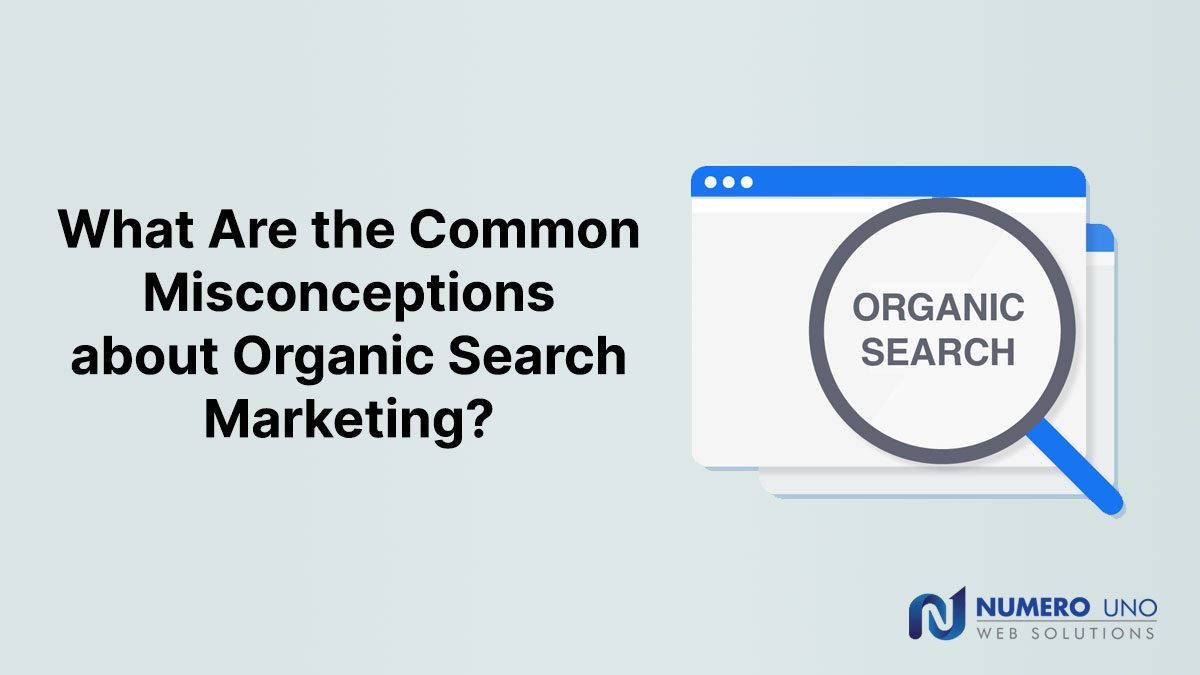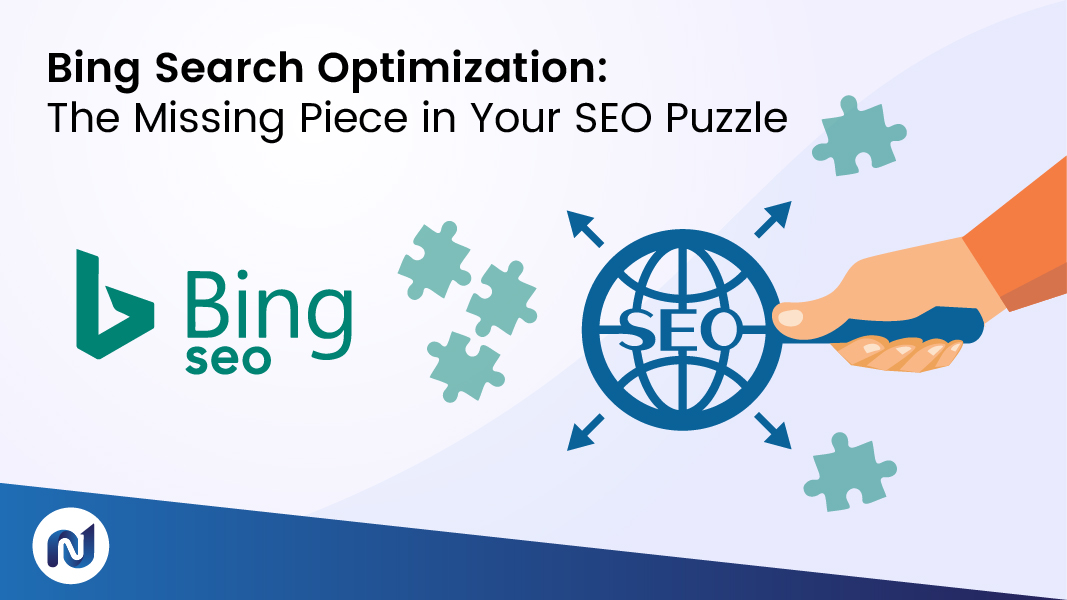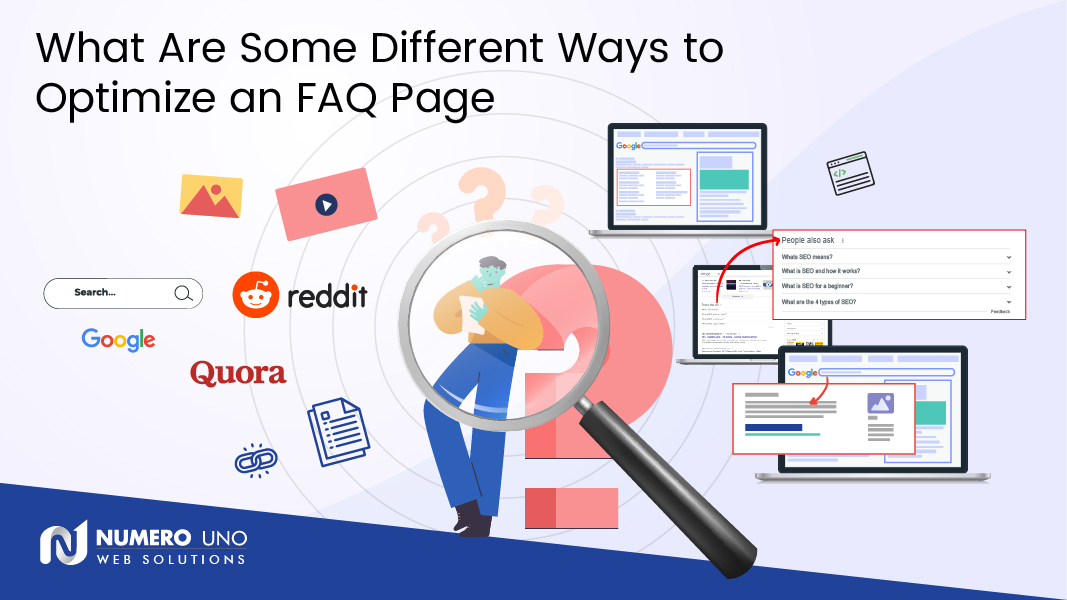
Organic search marketing is the process of optimizing a website to increase its rank on search engine results pages (SERP) for certain keyword queries. The main aim of organic search marketing is to improve visibility and free web traffic without having to pay for it.
There are many search engine optimization (SEO) myths out there. These misconceptions can lead to small business owners making wrong decisions when it comes to organic search marketing. This article will dispel some of the most common myths about organic search optimization.
Myth 1: Organic Search Marketing Requires No Effort
Search engine optimization is not a one-time event. It is an ongoing process that requires continuous effort. It’s not something that can be done once and then overlooked. The algorithms of search engines are constantly changing, so in order to maintain high rankings on SERPs, it is necessary to continuously monitor the website and make sure that it is up to date with the latest SEO strategies.
In addition, new websites are constantly being launched, so the competition for top rankings is also constantly increasing. To stay ahead of the competition, it is necessary to continuously monitor the website’s performance and make sure that the SEO strategies are working. In addition, new content needs to be added on a regular basis to keep the website fresh and relevant.
Myth 2: SEO Is Only about Meta Tags and Keywords on a Page
It is true that meta tags and keywords are important elements of SEO. The title tag and the meta description are used by search engines to generate the snippets that appear on SERPs. However, meta tags and keywords are not the only elements that search engines consider when ranking a website.
There are many other factors that are taken into consideration, such as the quality of the content, the structure of the website, the linking strategy, and the use of schema markup. In addition, search engines consider the user experience when ranking websites.
Therefore, it is important to focus on all aspects of SEO, and not just on meta tags and keywords.
Myth 3: Keyword Ranking Is Irrelevant in Today’s SEO
The use of keywords in your content remains important, but it is worth noting that each Google algorithm upgrade seeks to focus even more on search intent.
While keywords are still a vital part of a well-rounded SEO strategy, what is more important is to focus on the searcher’s intent when using keywords and to make sure that the content is relevant and useful. In addition, it is also important to use semantically related keywords to improve the chances of the content being found by searchers. After all, many searches these days are conducted via voice search.
Myth 4: Targeting More Keywords on One Page Improves the Keyword Rankings
This is a common misconception and one that can lead to keyword stuffing, which is when a website tries to cram in as many keywords as possible into the content in an attempt to improve the rankings. However, this is not an effective SEO strategy and can actually lead to lower rankings.
The reality is that it is better to focus on a few select keywords per page and to create high-quality content that is relevant and useful to the reader. In addition, it is also important to make sure that the keywords are used in a natural way and are not forced into the content.
Myth 5: You Do Not Have to Create New Content Regularly
This is another common misconception, and one that can lead to a website becoming stale. The reality is that new content needs to be added on a regular basis in order to keep the website fresh and relevant. In addition, new content also provides an opportunity to target new keywords and improve the rankings.
Therefore, it is important to create new content on a regular basis and to make sure that the content is high-quality and relevant to the reader.
Myth 6: Image Optimization and Real Images Are Not Important
Images are an important part of SEO, and they should be optimized in order to rank well in search engines. In addition, real images are also important as they can help to improve the user experience and make the website more visually appealing. For Google Business Profile (GBP), real images add more value and improve search visibility.
It is important to optimize images for the web and to make sure that they are relevant and useful to the reader. In addition, it is also important to use real images whenever possible in order to improve the user experience.
Myth 7: A Sitemap Can Improve SEO Rankings
A sitemap is an important part of SEO, but it is not the only factor that determines the ranking. The truth is that a sitemap can help to improve the visibility of a website, but it is just one element of many that search engines take into account when determining rankings.
Therefore, while a sitemap can be helpful, it is just one part of a larger SEO strategy.
Myth 8: Backlinks Are More Important Than Content
It’s no secret that content is key to a successful SEO strategy. But many people still believe that backlinks are more important than content-and that’s simply not true. In fact, content is now the most important factor in SEO. Without high-quality, relevant content, your website won’t rank as high on SERPs, no matter how many backlinks you have.
The reality is that backlinks are just one part of the SEO puzzle, and they should be used in conjunction with other elements such as content and metadata.
Myth 9: Automated SEO Software Provides Accurate Results
Small business owners are always looking for ways to increase traffic and get their site ranked higher in search results. You may have heard about automated SEO software and how it can help correct your website’s SEO errors and improve your rankings. But is this really true?
In truth, automated SEO software can help improve your website’s SEO, but it’s not a cure-all. In addition, automated SEO software can sometimes give incorrect results. Hence, it is very important to carefully review the results or get the help of an expert before making any changes to your website.
Myth 10: SEO Is Only for Big Companies
It is a common misconception that organic search marketing is only for big companies with large budgets. Search engine optimization is important for all companies, whether big or small. With the help of an organic search marketing strategy and with a well-optimized website, a small business can compete with larger businesses and get more exposure.
Myth 11: Website Designers, IT, and Developers Can Do SEO
Organic search marketing requires a lot of specialized knowledge and skills. It is not something that just anyone can do. You need to have a good understanding of how search engines work, as well as the latest algorithms and trends.
In addition, you need to be able to write high-quality, keyword-rich content. Therefore, it is important to hire an experienced and certified SEO professional who can help you improve your website’s ranking and visibility.
Contact Numero Uno and Optimize Your Website for Organic Search Marketing
As you can see, there are many misconceptions about organic search marketing. However, with the help of a professional SEO company like Numero Uno Web Solutions, you can optimize your website and improve your ranking on search engines. Contact us today to learn more about our services and how we can help you achieve success in organic search marketing.



